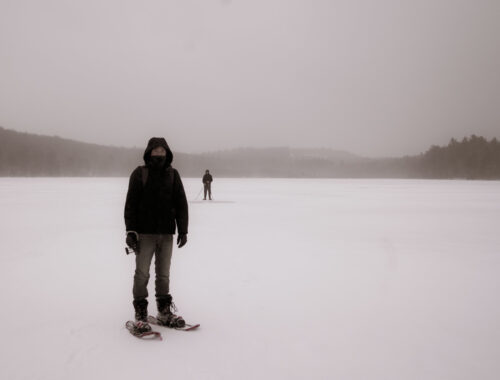
The Importance of Being Heard and Acknowledged
Yesterday I shared a few paragraphs from Alice Miller’s The Body Never Lies. Today you get different writers, but the focus is the same: the conflict between the unconscious mind and the conscious mind that threatens to break us.
In What My Bones Know, Stephanie Foo shows us, very clearly, what happens to an adult who was physically, mentally, and emotionally threatened by her parents nearly every day of her childhood. She tells us what her bones know. She shows us the ways in which the memories stored in her body affect her mental, emotional, and physical well-being in adulthood, when her life is “safe.” She explains how her unconscious memories sabotage her at every turn until she finally faces them and lets them be heard.
The following passage has stayed with me these many months. Foo is relating a story from her motherless teen years when her father has tried to kill her and himself AGAIN. This time, she opened the door and jumped from the car when it slowed enough. At the end of her long walk home, she finds a rusty axe, carries it to her room, and hides it under the bed. In the middle of the night, when her father’s sound asleep, she carries the axe to his room, stands next to his bed with the axe raised overhead, and wakes him. During the course of the conversation, she says:
You will never grab me. You will never touch me. You will never go over the fucking speed limit. You will drive right. You will never use the car to punish me. Do you have any idea of what growing up with a constant fear of death has done to me? It has turned me into the fucking monster you see right now. This is happening because you did this to me.
She is unequivocally right. As I tried to get across in a recent post about Gretchen Smelzer’s Journey Through Trauma, though, her words do not apply just to a select group of abuse survivors. They apply to virtually all of us. The circumstances may be less dire for most of us, but it’s a matter of degree, not a matter of kind: “This is happening because you did this to me.”
In The Rape of the Mind, Joost Meerloo explains:
One of the important things we have learned from modern psychology is that the roots of many of our adult attitudes and problems lie far back in the seeming quiet of the nursery and childhood years. The infant’s life may appear to be placid and uneventful, but from the moment he is born he hears thousands of rumblings both from inside his own mind and from the world outside. . . . He is utterly and completely dependent, unable by himself to find adequate responses to his needs. There he is, with his pitifully limited means of adaptation, with his minimum of innate patterns of action. Warmth, food, and love, things which he needs to sustain his life, come to him when he does the “right” thing—and the right thing is the learned, civilized thing, not the instinctual, primitive thing. The giants, his parents, make demands on him—they begin to mold him according to their own habits, and the infant must submit to all these external demands in order to get what he wants and needs. He must follow the hundreds of subtle, incomprehensible educational rules in order to be paid back with the affection and protection on which he is so dependent. All of this transforms him into a more or less conforming being. His parents’ morality is, as it were, sucked in and becomes an ever-present force inside him. He is imprinted with all kinds of habits which serve to condition him into the particular form of adaptation his parents and his society think good for him. The forms his adult behavior will take are foreshadowed by the form his parents’ behaviors take. The patient mother imprints patience on her child; the anxious, compulsive mother imprints tensions on hers.
In that last sentence, Meerloo speaks only of the mother’s influence on the child. Funny. There’s so much more to it than that. This is happening to you, because you did this to me. What about the father’s influence on the mother? This is happening to you, because you did this to me. AND This is happening to your child because you did this to me.
The second most important book I’ve ever read, after The Body Never Lies, was originally written in French by Marie-France Hirigoyen: Stalking the Soul: Emotional Abuse and the Erosion of Identity. Thank God it is available in an English translation. That book had me stopping every few pages, jaw dropped, looking up in absolute disbelief: This has happened to me. This is how my husband has treated me. This is how others have treated me.
I used to wonder at the subtitle: Erosion of Identity. What does that mean? I now know. It means that you become someone you were never meant to be in order to placate the tyrant in your life. So, instead of being the wonderful mother you always envisioned you’d be, you yell at your kids when they break something because you know your husband will be upset at the waste of money; or you are sullen and surly with your kids because your husband won’t hear you when you tell him how much his words have hurt you—in fact, he tells you that you’re wrong for having those emotions in the first place; or you spend far too much time on your computer, in long conversations in a Yahoo group for homeschoolers, instead of playing, growing, and learning with your own homeschooled children because you are so desperate for someone to take your needs and thoughts and feelings seriously.




